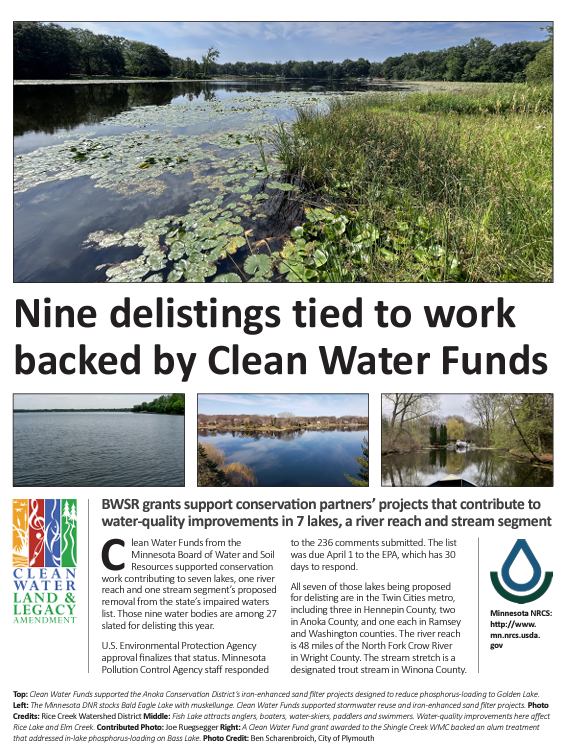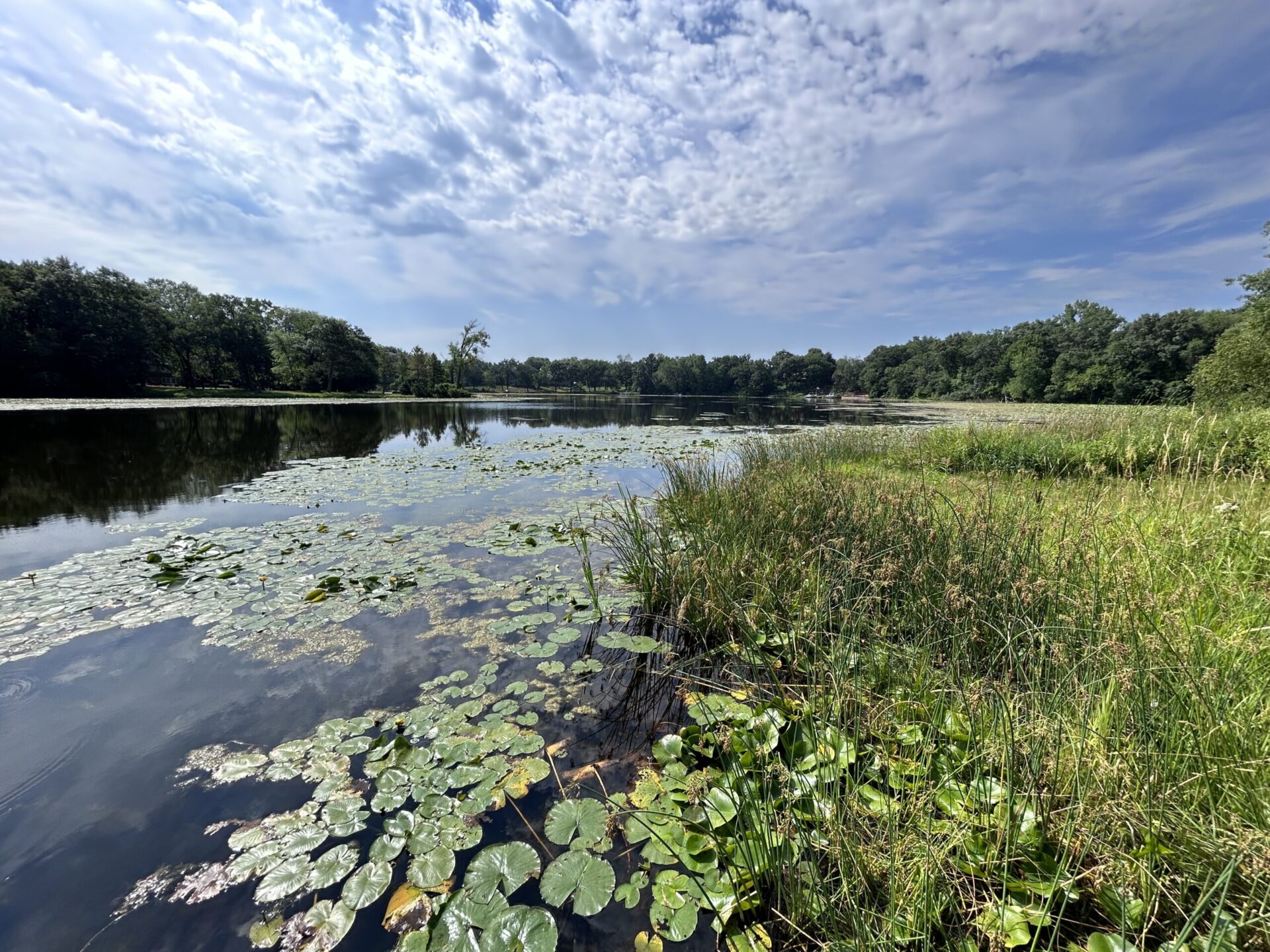
Rice Creek Watershed District Celebrates Four Lakes Delisted from Minnesota’s Impaired Waters List!
Four lakes within the Rice Creek Watershed District have been delisted from the state’s impaired waters list! Below is more information and stories of these celebrations.
This means that a lake was removed from the Minnesota impaired waters list, indicating that it no longer meets the criteria for impaired water quality set by the state. This suggests that the lake has improved in terms of pollutants, nutrient levels, or other factors that previously led to its classification as impaired.

Learn more about the MPCA Impaired Water’s List and Delisting Process
These success stories comes from the efforts and projects supported by Clean Water Funds, RCWD, and various partners, that worked to improve water quality and restore the health of these water bodies.
Bald Eagle Lake
One of the lakes delisted is the 1,010-acre Bald Eagle Lake, located in White Bear Lake. Projects such as stormwater reuse initiatives, alum treatments, rain gardens, and iron-enhanced sand filters were completed which lead to significant reductions in phosphorus levels and algae blooms. The lake’s water clarity has notably improved, making it more inviting for recreational activities.
There has been numerous shoreline restoration projects on this lake, these projects include planting shorelines with native plants and stabilizing the bank so it doesn’t erode into the water. RCWD and the Bald Eagle Lake Association worked on a large shoreline restoration initiative where homeowners were paid to restore their shoreline with native plants.
Click on links in text for project pages and more information about individual efforts.
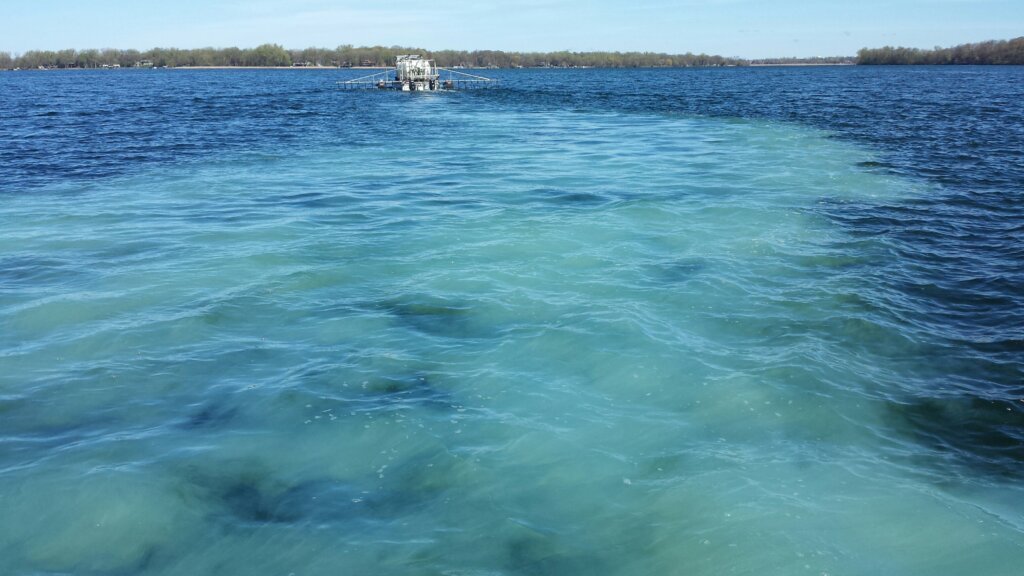
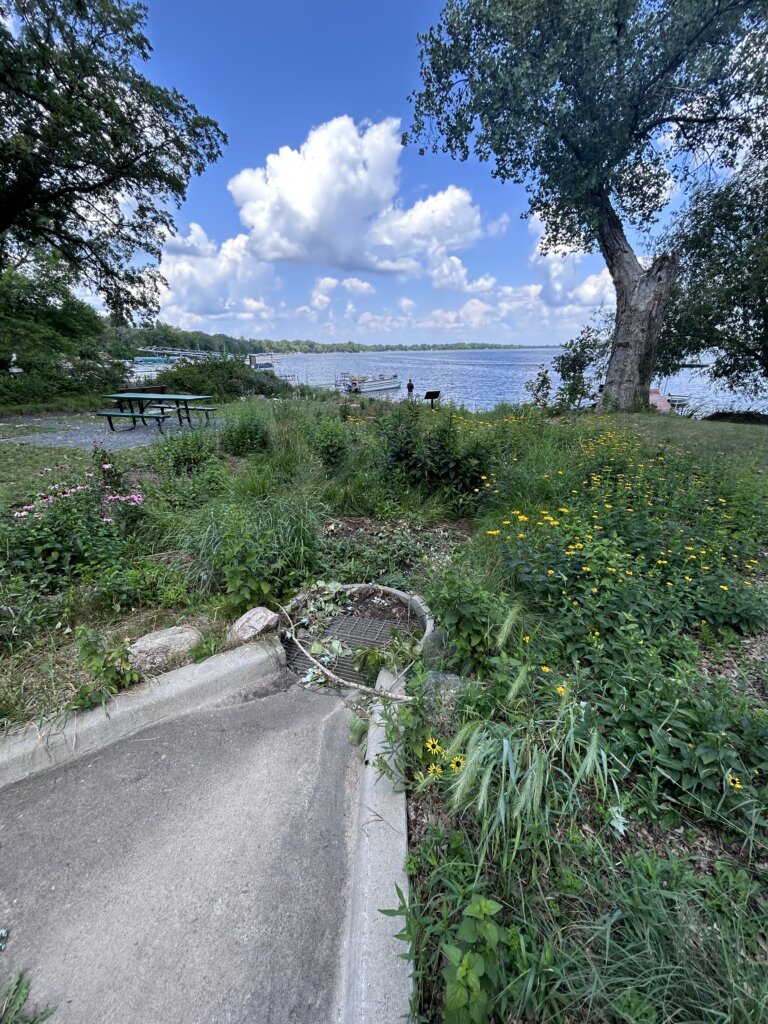
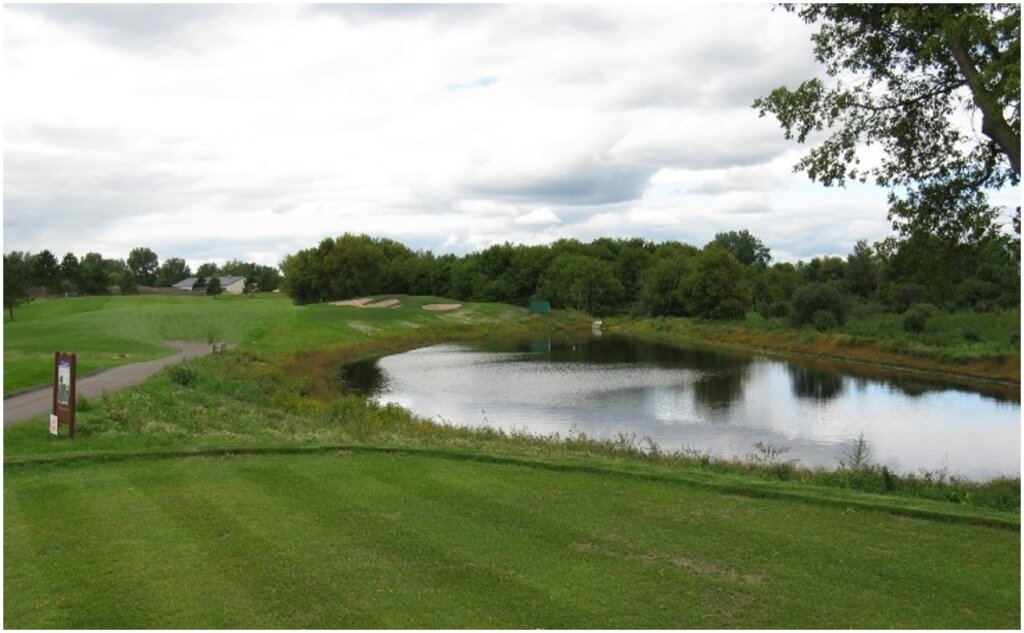
Bald Eagle Lake Delisting Celebration
On October 17th 2024, the community gathered to celebrate an important achievement for Bald Eagle Lake—it was officially removed from Minnesota’s impaired waters list. This event marked the success of years of hard work to improve the lake’s water quality.
The celebration highlighted the many projects that helped restore the lake, like shoreline restorations, alum treatment, and efforts to manage invasive species. It was a chance to recognize the power of community partnerships in making real improvements.
While the event celebrated the progress made, it also looked to the future. Attendees were encouraged to stay involved in efforts to protect the lake through local programs and grants that support water quality projects. This celebration was a reminder of what can be accomplished when a community comes together to care for its natural resources.
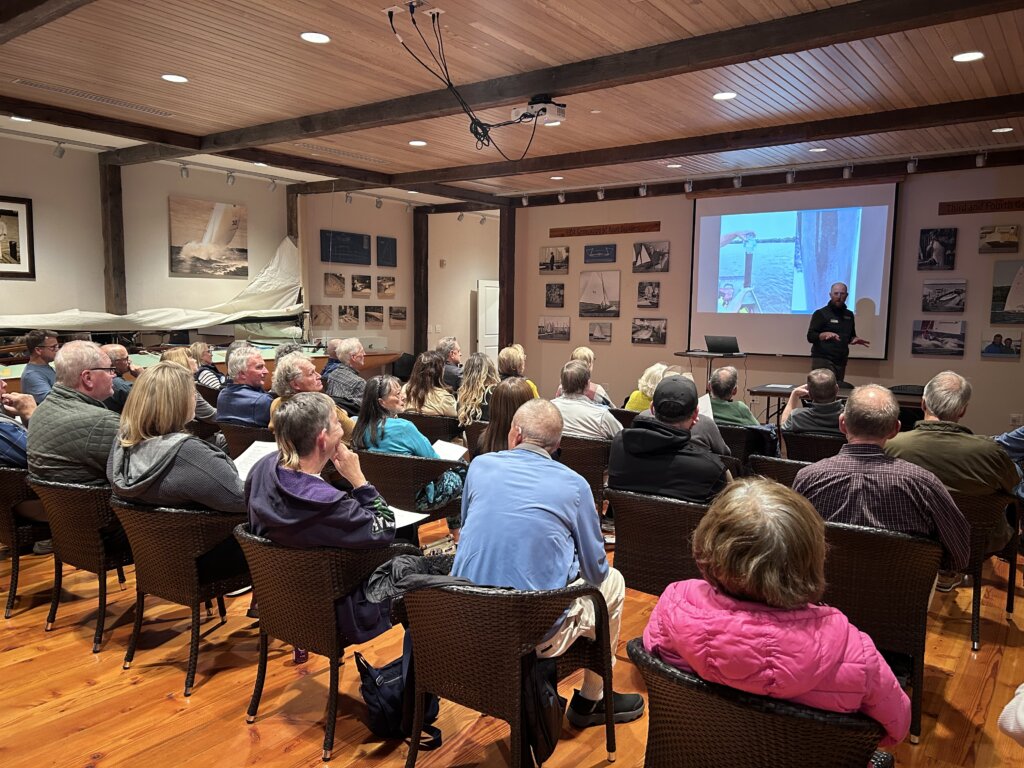
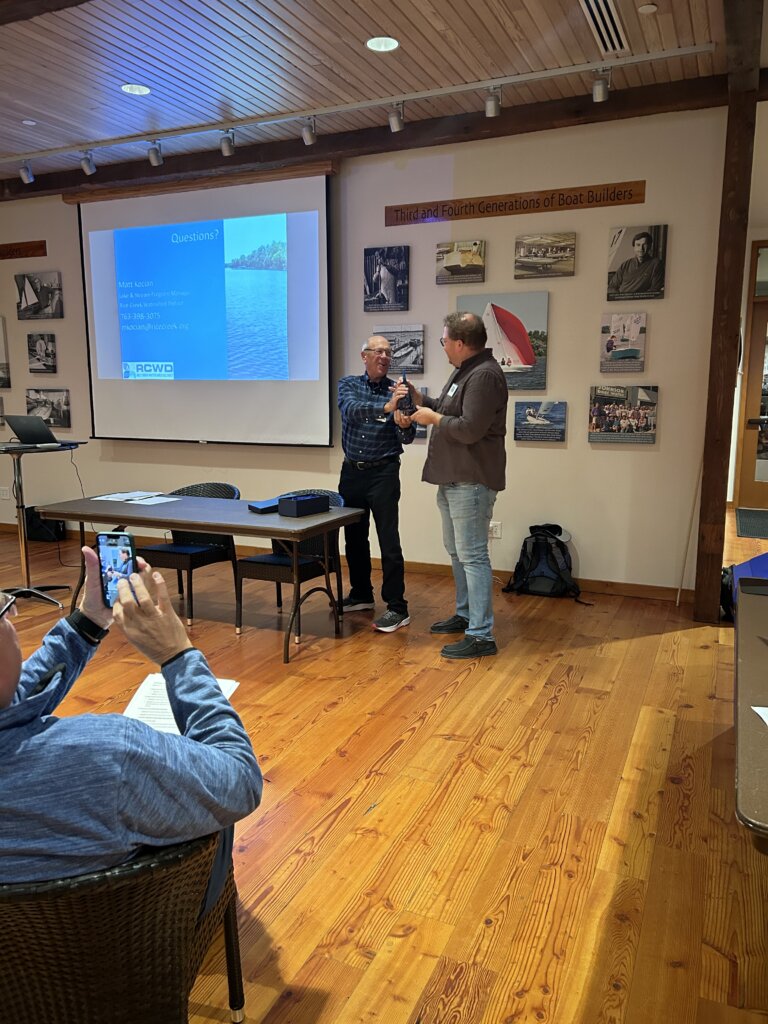
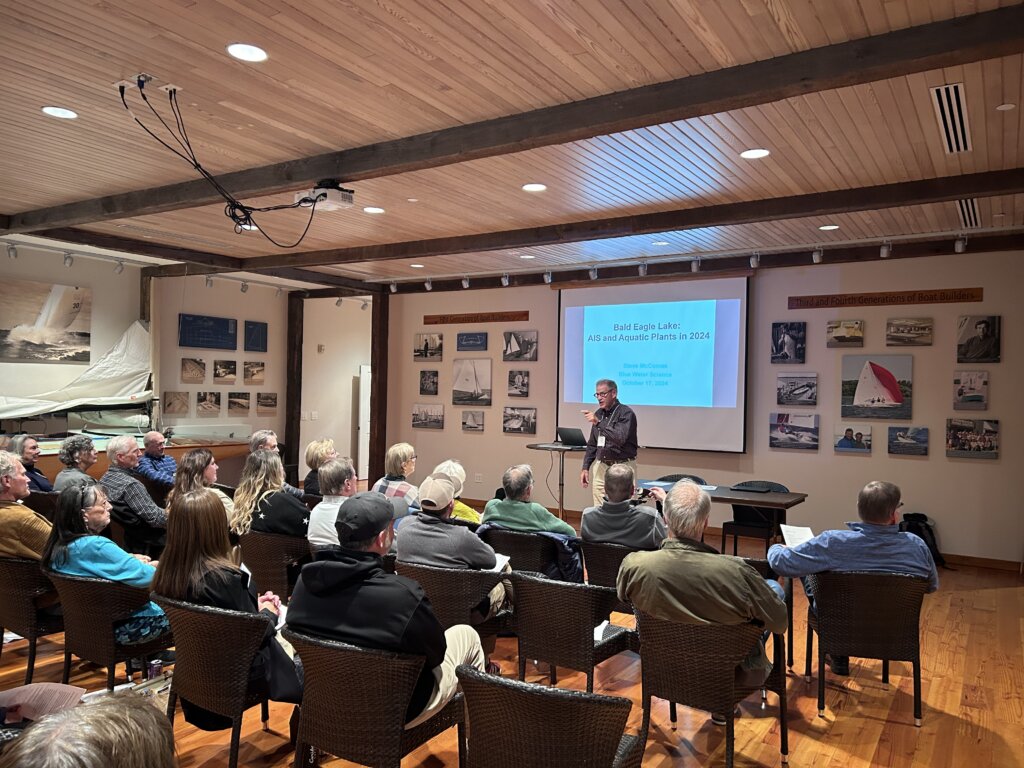
Other Articles:
Bald Eagle Lake May Be Removed from Impaired Waters List
Lake Association and Watershed work together toward common goal
Golden Lake
Another success story lies in the delisting of Golden Lake, a 55-acre lake feeding into Rice Creek, located in Circle Pines. The district’s efforts, in collaboration with partners like the Anoka Conservation District, City of Blaine, and City of Circle Pines have significantly contributed to the improvement of water quality. Projects like iron-enhanced sand filters have effectively reduced dissolved phosphorus from entering the lake from Anoka County Ditch 53-62. RCWD monitoring data show phosphorus levels are down 20% to 50% compared with the longtime average.
There has also been private homeowner projects such as shoreline restorations (replanting shorelines with native plants and stabilizing the bank) and rain gardens completed around the lake. These projects contributed to improving the lake’s water quality as well. Homeowners and shoreline owners play a huge role in keeping this lake clean into the future.
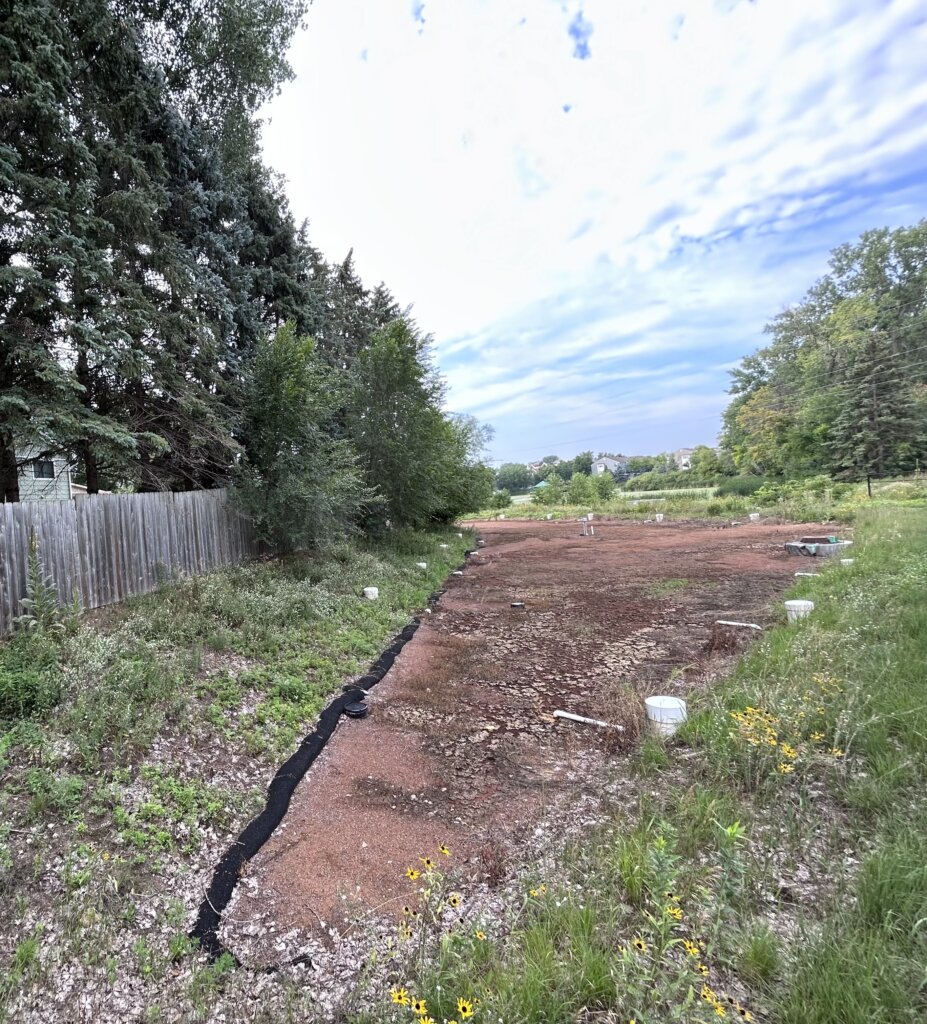
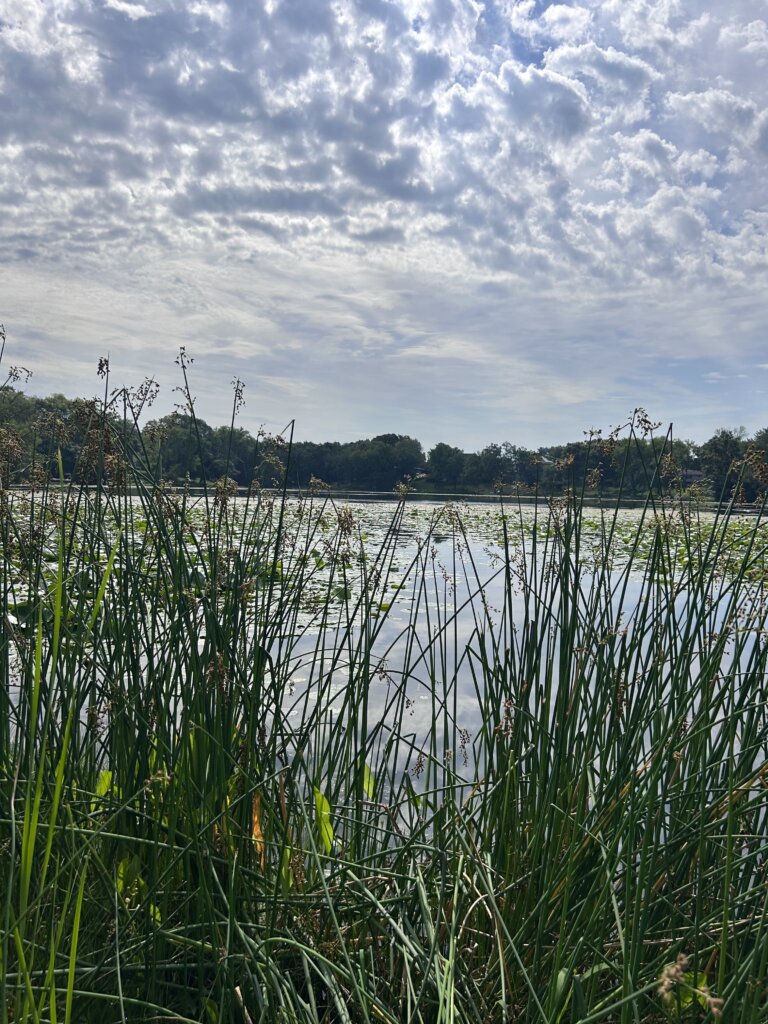
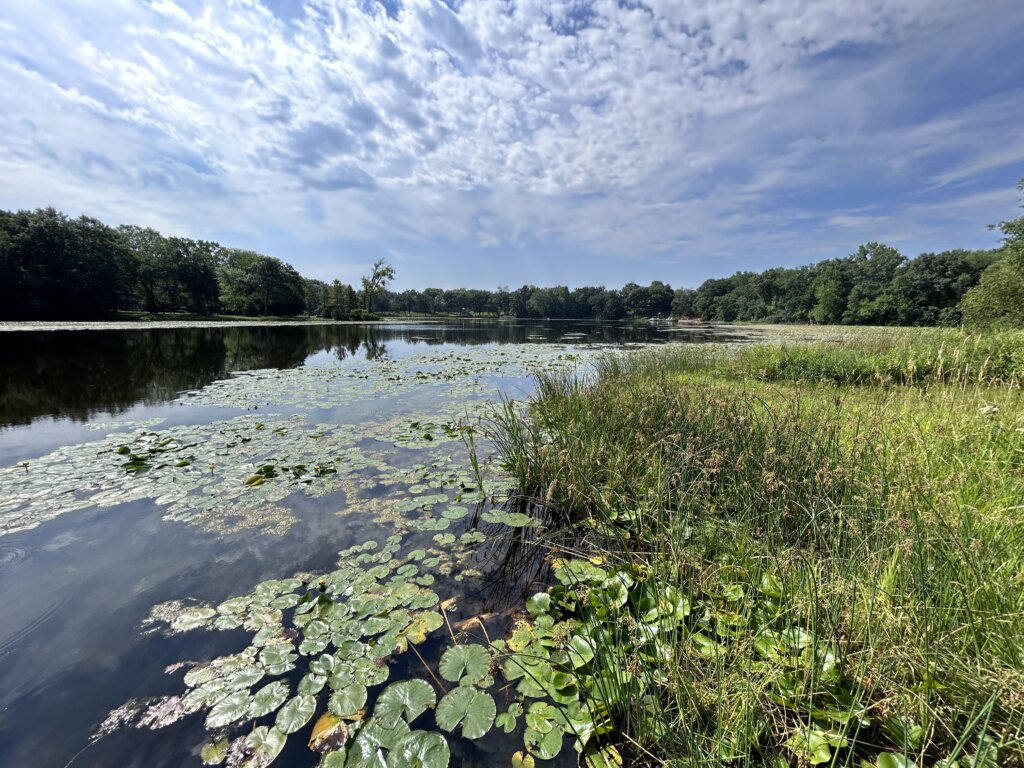
Golden Lake Delisting Celebration
On August 15th 2024, the community came together at Golden Lake in Circle Pines to celebrate the lake’s removal from Minnesota’s impaired waters list. This milestone represents years of effort to restore and improve the lake’s water quality, made possible through strong partnerships between the City of Circle Pines, the Rice Creek Watershed District (RCWD), Anoka SWCD, nearby cities, and local residents.
Mayor Bartholomay opened the event, speaking about the importance of community involvement and the city’s role in the restoration. Other speakers, including Patrick A. from Circle Pines and Nick T. from RCWD, highlighted the partnerships and projects that helped bring Golden Lake back to health. Matt Kocian from RCWD provided an update on water quality and monitoring efforts, including work to prevent blue-green algae.
The event also looked to the future, with RCWD presenting an award to the City of Circle Pines for their dedication to the lake’s improvement. Kendra S. from RCWD shared information on how the public can stay involved, offering details on outreach and grant programs that support ongoing protection efforts.
The celebration was a testament to the power of collaboration and a commitment to keeping Golden Lake healthy for years to come.
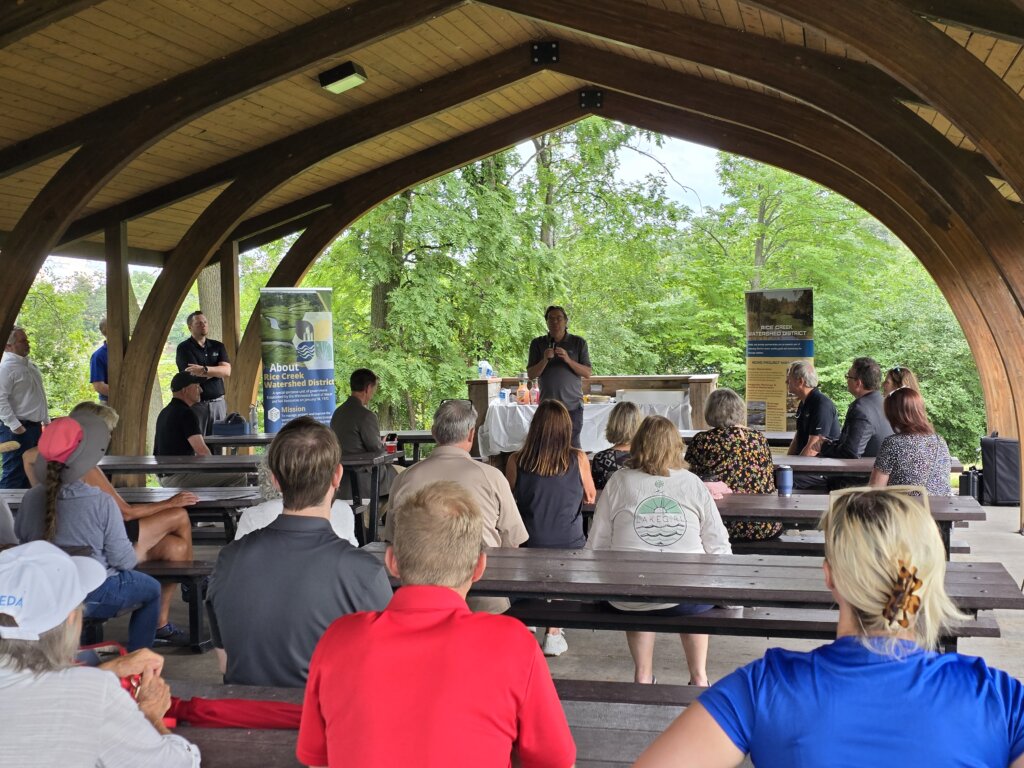
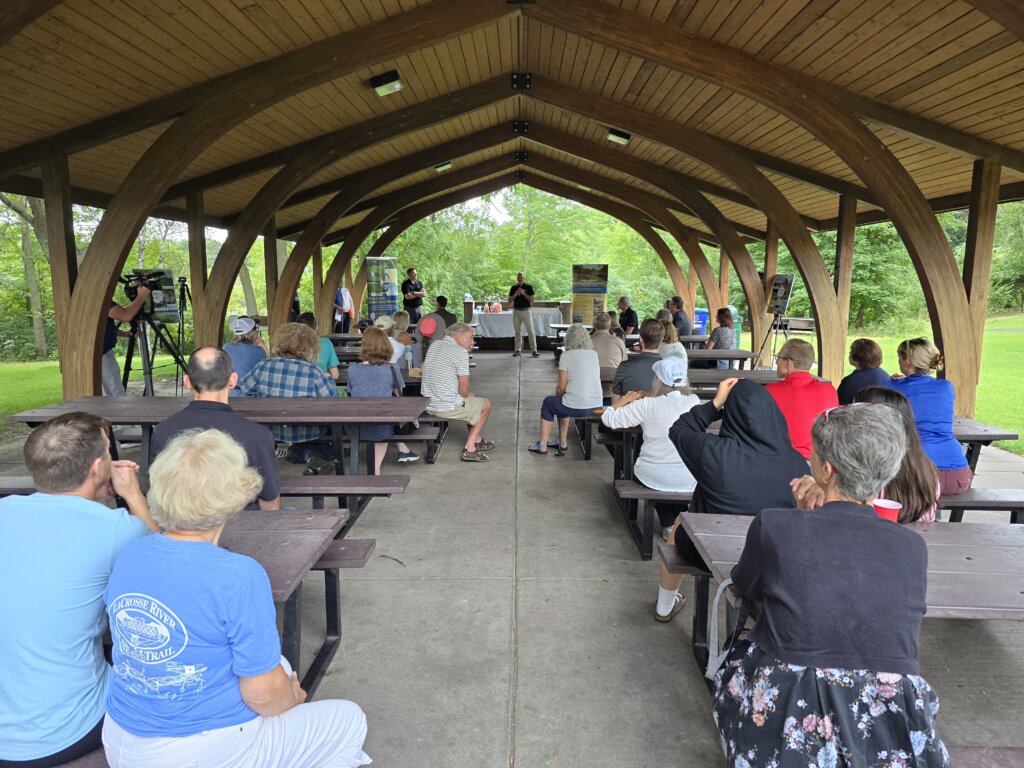
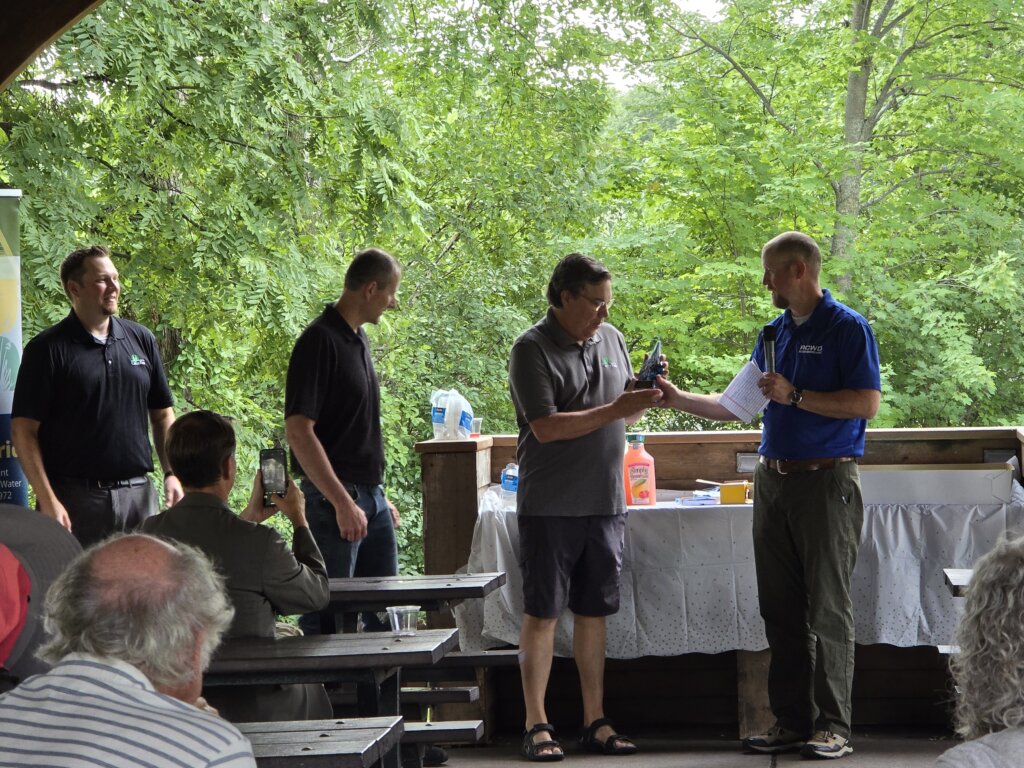
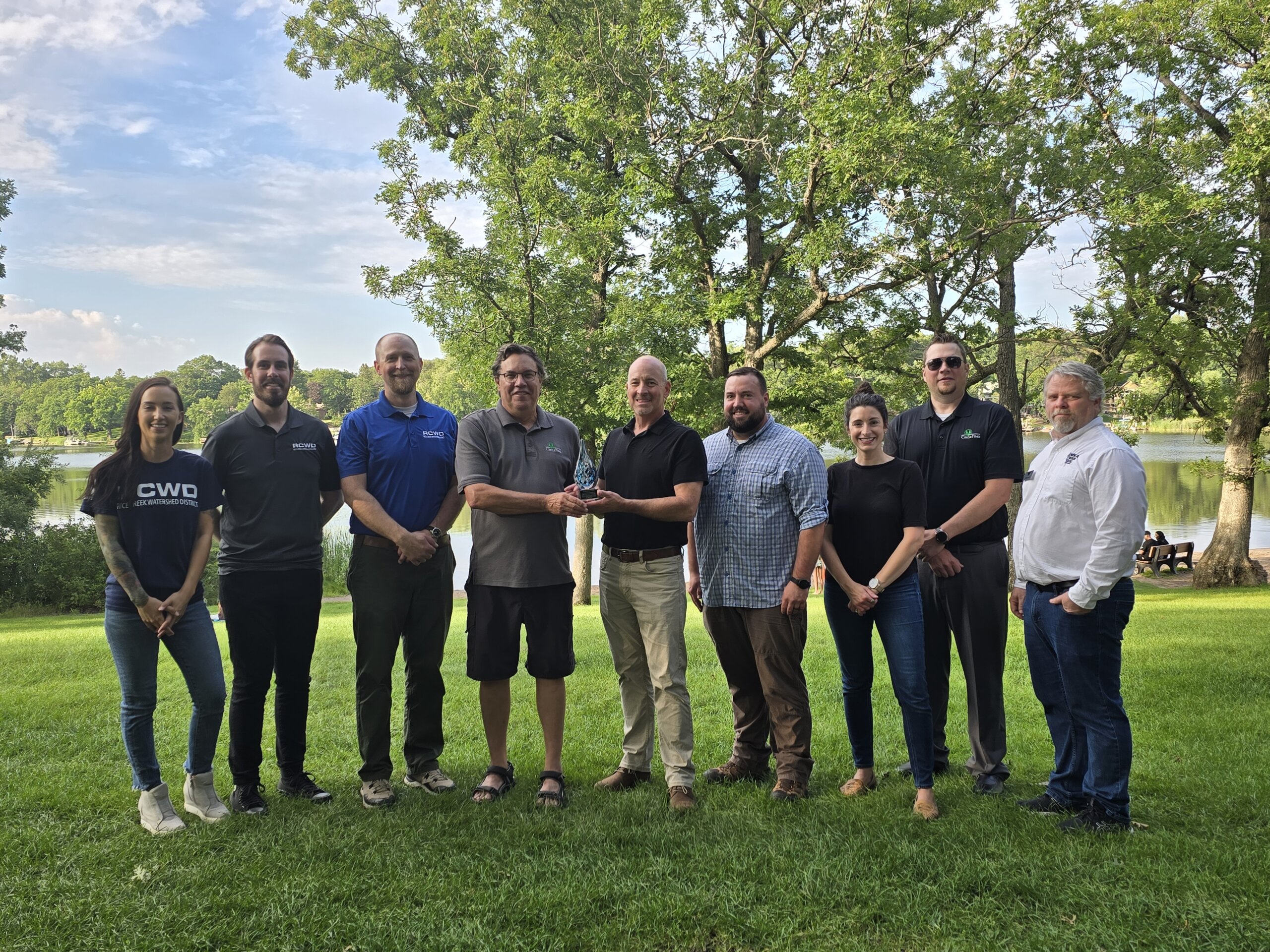
Other Articles:
Golden Lake Video: NorthMetro TV
Island Lake
Island Lake, previously listed as impaired since 2002, has now been delisted! One significant effort involved installing rain gardens and stormwater treatment systems. These rain gardens capture and filtered stormwater runoff from nearby roads and houses, reducing the amount of phosphorus entering the lake. The rain gardens were strategically placed at locations like Milton Street and Victoria Village, with support from the Island Lake Association, the city of Shoreview, and the Homeowners Association (HOA). These gardens not only beautified the area but also served as effective natural filters, absorbing phosphorus and preventing it from reaching the lake.
Look at the newly installed rain gardens signs at this project while walking around the lake to learn more!
RCWD will look to hold community events with the City and Friends of Island Lake in the future. Stay tuned!
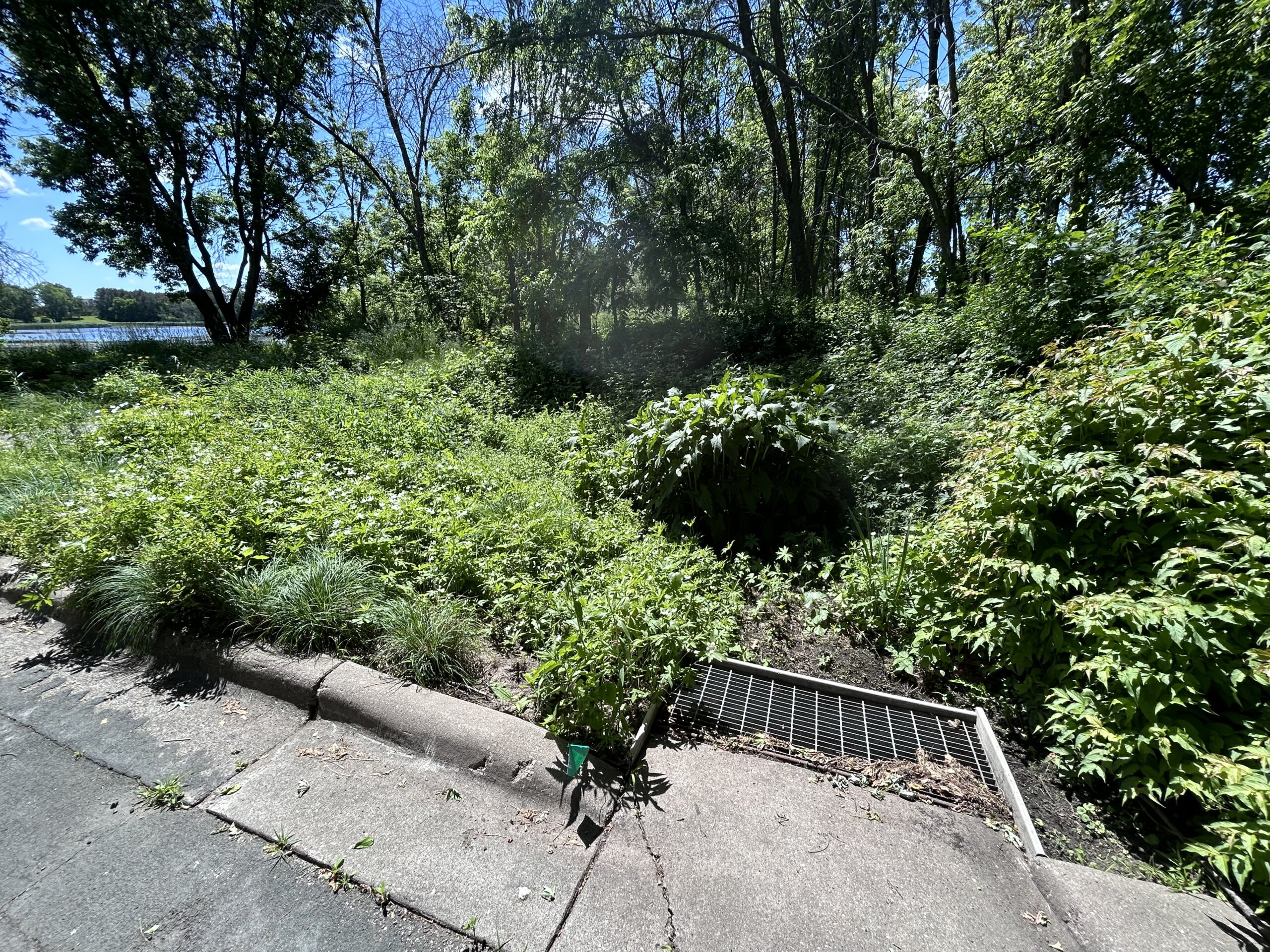
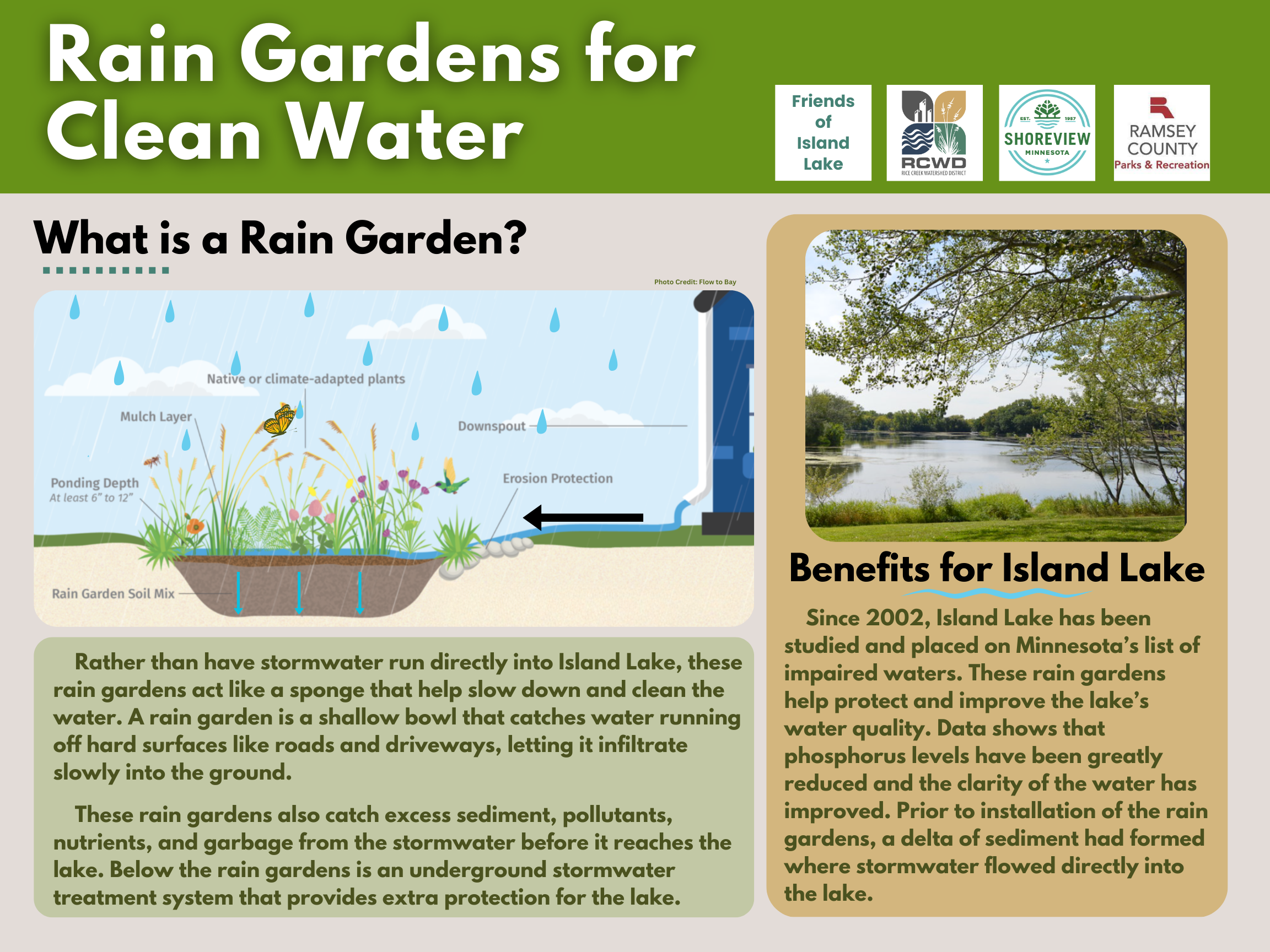
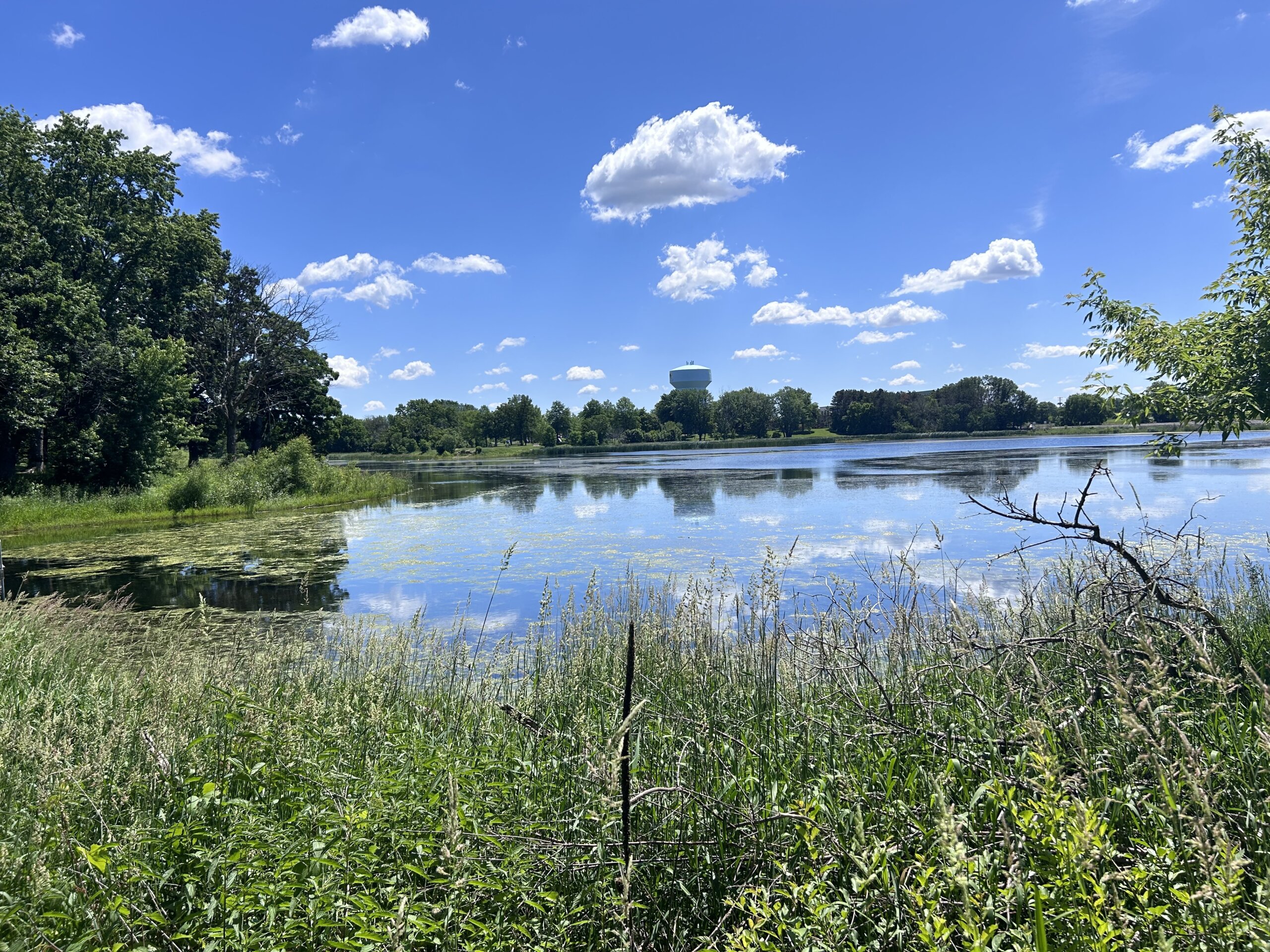
Other Articles:
White Rock Lake
White Rock Lake has shown improvements that could be tied to natural ecological shifts. One significant contributor may be a change in the lake’s fishery, potentially due to a partial winterkill event.
Additionally, one landowner in the area, who is also a volunteer for the Citizen-Assisted Monitoring Program (CAMP), has actively engaged in land and livestock management projects, working with the Washington Conservation District. These efforts have contributed to reducing nutrient runoff and improving water quality. RCWD and partners will continue to support projects and efforts in this area to keep this lake healthy.
Minnesota Board of Water and Soil Resources Lake Delisting Article
Click image to read article
